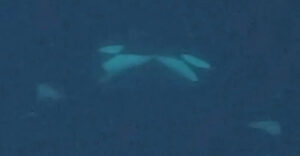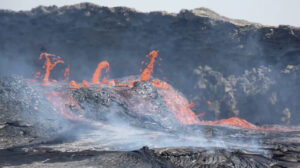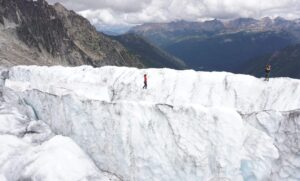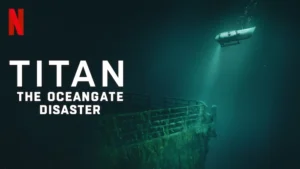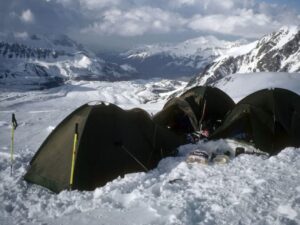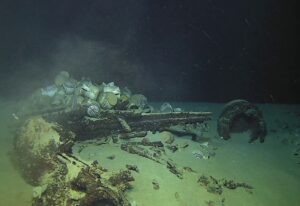When we’re not outdoors, we get our adventure fix by exploring social media and the web. Sometimes we’re a little too plugged in and browsing adventure reads can turn from minutes to hours. To nourish your adventure fix, here are some of the best adventure links we’ve discovered this week.
Sixty Swims Across Iceland: When Kristin Hjartadottier turned 60 she wanted to set herself a challenge that made her feel alive. An avid wild swimming fan, she decided to complete 60 wild swims around her home country of Iceland. She talks about her greatest experiences, the challenges of open water swimming, and her top five swimming spots in Iceland.
Loose Lips Save Sunken Ships: Shipwrecks often become bustling marine habitats but this also attracts fishermen. The Stellwagen Bank National Marine Sanctuary in Massachusetts is home to approximately 200 shipwrecks. In recent years, it has become a rich scallop fishing ground.
As trawlers scrape across the seafloor, they destroy parts of the shipwrecks, decimating the historic ships and the habitats they have become. There is no law against fishing in the area, so the sanctuary team has developed a new tactic. They are releasing the coordinates of the shipwrecks and radioing any boats that get too close.
Clyde the crag dog
How the Worst Crag Dog Saved My Life: Matt Samet had long suffered from depression and anxiety. He stopped taking his medication when it started to affect his nervous system but found he was in almost constant distress.
Contemplating suicide, one thing pulled him back from the edge: Clyde. Clyde the rescue dog became his near-constant companion. Samet had to take Clyde for a walk every day and it forced him to keep moving. Clyde loved mountains and crags but was a menace to those around him, constantly chewing through backpacks, stealing sandwiches, and wandering off.
Perhaps not the perfect climbing dog, but essential for Samet.

Pete Whittaker. Photo: Mike Hutton
O’Halloran Climbs Australia’s Hardest Route: Tom O’Halloran has made the first ascent of Australia’s hardest sport climbing route, Hump of Trouble. The Olympian’s journey on the route started in 2016 when he first bolted it. Over four years, he spent 60 days working on it. Covid, the Olympics, and injury kept him away for three years, but he has finally reached the top. “It’s the hardest piece of climbing I feel like I’ve ever done,” he said.
Ode to John Fielder: John Fielder is one of the most accomplished photographers of our time. Since his career began in 1981, he has published over 40 books on Colorado landscapes and donated over 7,000 images to History Colorado.
Fielder’s most famous book was ‘Colorado, 1870-2000’, which showed how the state had changed over 130 years. He hiked over 500 miles with all of his equipment to get the shots. On August 11, aged 73, he passed away.
World-class climbing
First Free Ascent of Eigerdosis 8c: Pete Whittaker has made the first free ascent of Eigerdosis 8c in Jøssingfjord, Norway. A mixture of face and crack climbing, the route starts partway up the wall.
Over five years, Whittaker has climbed all free routes on The Profile Wall and considers them all world-class. Next, he wants to go one step further and climb the route from the ground.
Védrines Completes Fast Aiguille Dibona Solo: Benjamin Véndrines has released a video documenting his climb on Aiguille Dibona. In July, he completed the Madier route up the south face of the mountain in the Écrins massif, French Alps. He climbed the 3,130m peak in just one hour and 24 minutes.
Védrines first climbed the South Face years ago with a partner, and he fell in love. From that point, he knew he wanted to come back and climb solo.
Thistlegorm: After a week diving in the Red Sea, Grace Pritchard is heading for the real reason she is there, the SS Thistlegorm. She is fascinated by the history of the wreck. In 1941, the ship was taking supplies to the British Eight Army at Torbruk when German bombers sunk the ship. Jacques Cousteau discovered the wreck in 1955.
As Pritchard descends, she is amazed by how big the ship is and how it is frozen in time. She feels a “greater sense of appreciation and empathy for the events of World War II,” than she could get from any history book.

